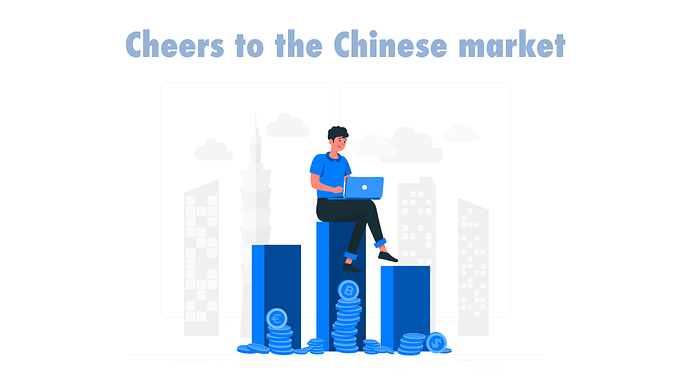Financial boost for Spicejet
SpiceJet has secured a significant financial lifeline through a qualified institutional placement, attracting major investors like Goldman Sachs, Morgan Stanley, and Societe Generale. This Rs 3,000 crore infusion, combined with an earlier Rs 736 crore funding, aims to revitalise the struggling airline:pouring_liquid:![]() .
.
The company’s market share has plummeted, mainly due to the impact of the pandemic. Service disruptions and engine issues further exacerbated its challenges. The recent influx of funds for SpiceJet could help increase competition and offer more options to passengers. As fuel prices⛽ remain stable and airport infrastructure expands, the aviation sector has ample opportunity for growth.
Cheers to the Chinese market
The Chinese government has implemented a series of economic stimulus measures in response to a slowing economy🐌. These measures include reducing bank reserve ratios, lowering interest rates, boosting employment and social spending, and supporting the private sector. These actions signal a significant shift from the cautious approach the government had been taking due to concerns about increasing debt.
The markets responded positively to the stimulus, with Chinese stock markets experiencing double-digit growth🚀. Since 23 September, the CSI 300 has risen 24.7%, and the MSCI China 16.9%. However, there is uncertainty about the long-term effectiveness of these measures. While some fund managers are waiting for more evident signs of easing before investing, others remain pessimistic about China’s growth prospects, citing factors like household cash hoarding, a potential de-rating of Chinese equity markets, implementation, and fiscal commitments.
Smooth Seas Turned into Rough Waves
The Indian stock market reached record highs for the previous three consecutive weeks before profit booking spooked the markets in the current week. The foreign investors were net sellers to the tune of 30,614 crores until Thursday into Indian equities this week. The domestic equity experienced losses in the truncated week, with the Sensex & Nifty falling around 3.50% each until Thursday. China stimulus, Rising tensions in the middle east, weak PMI data weighed on the sentiments.
Flash PMI, optimistic expectations
The Indian private sector economy expanded at a slower pace in September, according to the HSBC flash PMI survey compiled by S&P Global. Both the manufacturing and services sectors contributed to the slowdown, with the headline flash composite PMI figure falling to its lowest point in 2024 to 59.3 in September from 60.7 in August. Despite this, the pace of growth remained well above the long-term average.
While output and new orders increased, the pace has eased👷. On the other hand, employment continued to rise steadily, driven by improved business confidence. Apart from this, inflation rates for both input costs and output prices remained relatively low. Service providers raised their charges💸at the slowest pace in over two and a half years. That said, India’s companies remained strongly optimistic about business activity in the coming years.
Going forward, the rally’s sustainability is likely threatened by elevated valuations. With attractive valuations in countries like China, FIIs lean towards Eastern Asian peers. Investors are eagerly awaiting Q2 earnings, hoping for improved earnings forecasts that could rewrite the market’s trajectory. The US elections are an added factor to watch🔭.
Source: Livemint, Business-standard, MoneyControl
To stay updated on actionable insights, visit ![]() https://bit.ly/3SVUWys
https://bit.ly/3SVUWys
Disclaimer – This content is for educational purpose only. https://sam-co.in/6j



